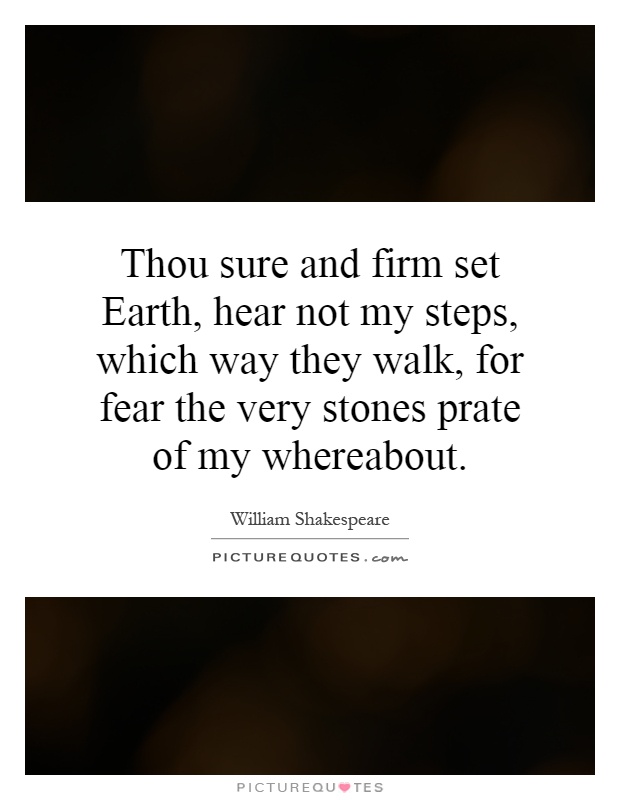Thou sure and firm set Earth, hear not my steps, which way they walk, for fear the very stones prate of my whereabout

Thou sure and firm set Earth, hear not my steps, which way they walk, for fear the very stones prate of my whereabout
In the famous play "Macbeth" by William Shakespeare, the quote "Thou sure and firm set Earth, hear not my steps, which way they walk, for fear the very stones prate of my whereabout" is spoken by the character Macbeth. This line reflects Macbeth's growing paranoia and guilt as he becomes more deeply entangled in his murderous deeds.The quote reveals Macbeth's fear that even the Earth itself is aware of his crimes and will betray him by revealing his whereabouts. This fear demonstrates Macbeth's increasing sense of isolation and alienation as he becomes consumed by guilt and paranoia. The idea that the very stones could speak of his crimes highlights Macbeth's belief that he is being watched and judged by the natural world around him.
Throughout the play, Macbeth's guilt and paranoia drive him to commit further acts of violence in an attempt to secure his power and protect himself from perceived threats. However, his actions only serve to deepen his sense of guilt and isolation, leading to his eventual downfall.
The quote also reflects Shakespeare's exploration of the theme of fate and free will. Macbeth's belief that the Earth itself is aware of his actions suggests a belief in a higher power or fate that is guiding his actions. However, Macbeth's fear of being discovered by the very stones also suggests a belief in the power of individual agency and the ability to shape one's own destiny.
Overall, the quote "Thou sure and firm set Earth, hear not my steps, which way they walk, for fear the very stones prate of my whereabout" captures the complex interplay of guilt, paranoia, and fate in Shakespeare's tragedy "Macbeth". It serves as a powerful reminder of the consequences of unchecked ambition and the destructive power of guilt and paranoia.












 Friendship Quotes
Friendship Quotes Love Quotes
Love Quotes Life Quotes
Life Quotes Funny Quotes
Funny Quotes Motivational Quotes
Motivational Quotes Inspirational Quotes
Inspirational Quotes